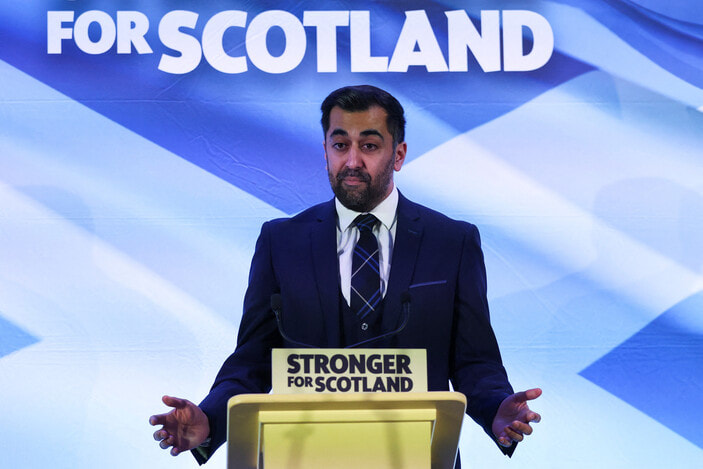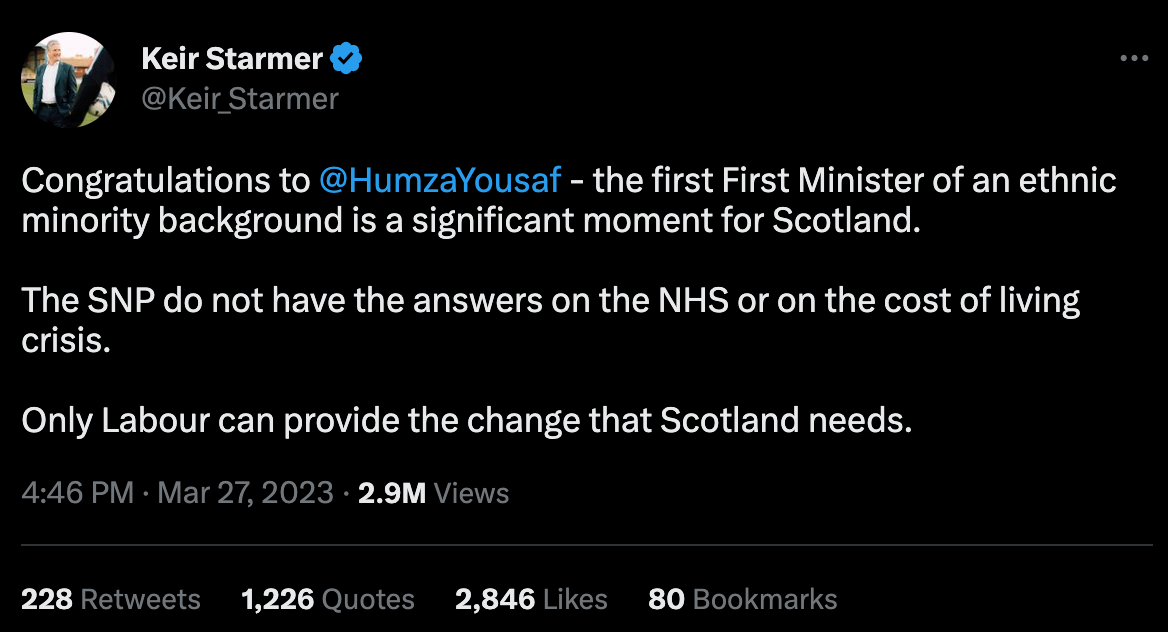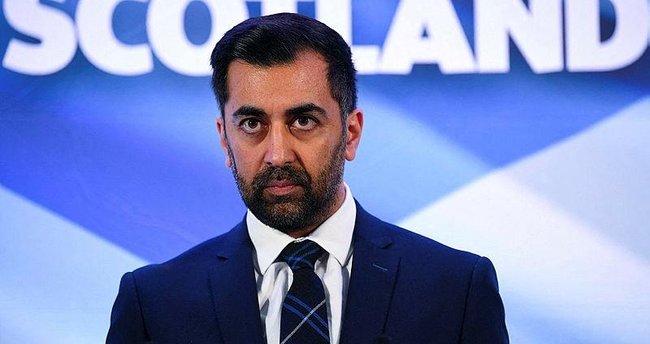|
On 27 March 2023, the Scottish National Party (SNP) elected Humza Yousaf as its new leader, polling a Brexit-esq '52%' of the members vote, taking over from former First Minister Nicola Sturgeon. Needless to say, 52% of the vote means that he didn't achieve 48% of it, so he has some serious work to do to bring about consensus and party unity within the SNP, which will be no easy task. Given the extended length of the SNP's tenure government, he may not benefit from a transitionary 'honeymoon period' to acclimatise to the demands of the role, either. Yousaf has a range of policy options to choose from as he sets out his vision for the future of Scotland. In this article, we will outline five potential policy options that he might focus on, and examine the evidence and statistics that support them. 1. Scottish Independence No surprises here. One of the key issues that Yousaf is likely to focus on is Scottish independence. It is the raison d'être of the SNP, after all. The SNP has long campaigned for Scotland to become an independent country, separate from the rest of the United Kingdom. The most recent poll on the issue found that 47% of Scottish voters supported independence, while 45% were against it. This suggests that there is still a significant amount of support for independence in Scotland, and Yousaf may seek to capitalize on this. However, there are significant challenges to achieving independence. Firstly, the UK government has consistently stated that it will not grant permission for a second independence referendum, which would be required for Scotland to become independent. Additionally, the economic consequences of independence are uncertain, with some experts suggesting that Scotland would face significant challenges in establishing itself as an independent nation. 2. Climate Change Yousaf has spoken extensively about the need to tackle climate change, and this is likely to be a key policy focus for him. Scotland has set ambitious targets to reduce greenhouse gas emissions, with a goal of achieving net-zero emissions by 2045. The country is currently on track to meet this target, with emissions falling by 49% between 1990 and 2018. There is still much more work to be done. The Scottish government has committed to investing £1.6 billion in low-carbon infrastructure over the next five years, but some experts argue that this investment needs to be significantly increased if Scotland is to achieve its climate goals. 3. Education Yousaf may also choose to focus on education policy, with the aim of improving outcomes for Scottish students. Scotland has a highly regarded education system, but there are concerns that standards have slipped in recent years. The most recent PISA results, which measure student performance in reading, maths, and science, showed a decline in Scotland's scores compared to previous years. To address this, Yousaf may look to invest in teacher training and support, increase funding for schools, and implement policies to improve student wellbeing. 4. Social Justice Another potential policy focus for Yousaf is social justice. Scotland has a relatively high level of income inequality, with the top 10% of earners receiving 27% of all income. Additionally, there are significant disparities in health outcomes between different socioeconomic groups. To address these issues, Yousaf may look to implement policies such as increasing the minimum wage, increasing funding for public services, and improving access to healthcare for disadvantaged groups. Funding an increase in spending will certainly not be easy in the present economic climate, however ... 5. Immigration Finally, Yousaf may choose to focus on immigration policy, with the aim of making Scotland a more welcoming and inclusive society. Scotland has a relatively low level of immigration compared to other parts of the UK, and some experts argue that this has contributed to the country's demographic challenges, such as an ageing population and a declining workforce. Yousaf may look to implement policies to attract more immigrants to Scotland, such as offering incentives for skilled workers to relocate to the country, and increasing support for refugees and asylum seekers. The final word ...
In conclusion, Humza Yousaf has a range of policy options to choose from as he sets out his vision for the future of Scotland. Scottish independence, climate change, education, social justice, and immigration are all potential areas of focus. While each of these policy options has its challenges, there is also evidence to suggest that they could be successful in improving outcomes for the people of Scotland. Yousaf will need to carefully consider the evidence and statistics surrounding each policy option, and work to build consensus (which will not easy, given the 'broad church' nature of the SNP) around his chosen priorities. It is worth noting that Yousaf will face significant challenges in implementing his policies, particularly given the current political landscape in Scotland and the wider UK. However, his position as leader of the SNP gives him a significant platform from which to advocate for change, and he will possibly be able to shape the political agenda in Scotland for years to come. Ultimately, the success of Yousaf's policies will depend on a range of factors, including political support, public opinion, and economic conditions. However, by focusing on issues such as climate change, education, social justice, and immigration, Yousaf has the potential to make a significant and positive impact on the lives of people in Scotland. Contributed by Versus History's guest current & historical affairs blogger 'JHZ' Tweet us @versushistory to discuss this or any other aspect of History.
0 Comments
Leave a Reply. |
Categories
All
Archives
April 2024
|



 RSS Feed
RSS Feed